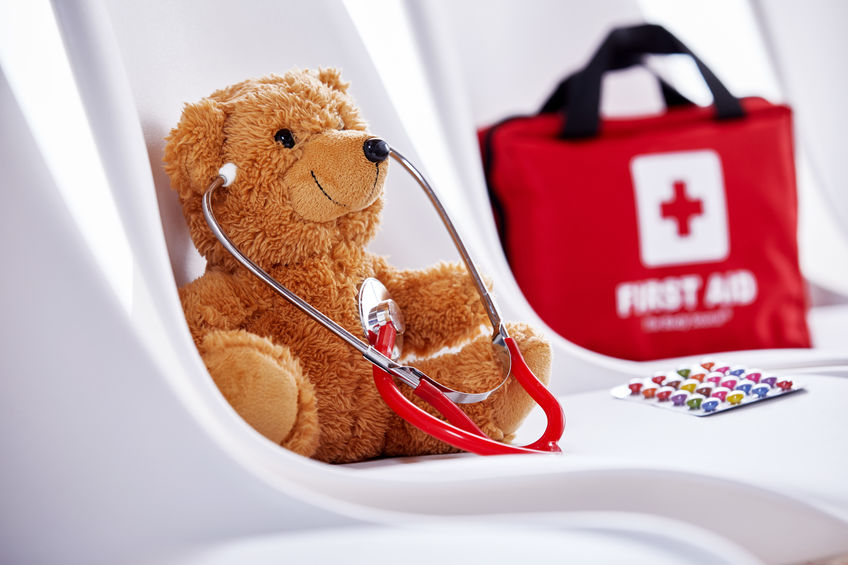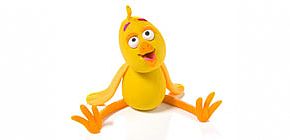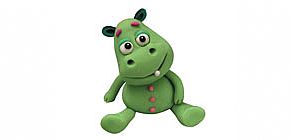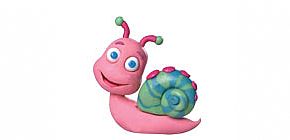Reducing Fever in Infants - What to Watch Out for?
 |
|
It starts off with slight complaints, evolves into crying, tiredness and sometimes a lack of appetite, and after a quick kiss on the forehead, you discover your infant has a fever. We’ve put together a list of all the recommended folk remedies for fevers, as well as those you should discard.
In a nutshell, fever is a common phenomenon among infants, and mainly stems from the infiltration of a virus or infection into the little one’s body. As such, if you’ve measured a fever of over 38 degrees in your infant, it’s important to pay attention to other symptoms that can appear as well, such as: colds, coughts, pains, difficulty swallowing, rashes, etc.
When to ignore the grandmas and their folk remedies
Several methods for reducing fevers in infants are considered to be good, but can actually be harmful and dangerous and should be avoided. These include:
-
Massaging alcohol into your infant’s chest. Alcohol is quickly absorbed by the skin and can enter the infant’s bloodstream and cause alcohol poisoning. As such, doctors recommend avoiding this fever-reducing method, altogether.
-
Ice baths. Once popular, dunking in too cold a bath can cause body temperatures to drop too quickly, causing damage to your child.
-
Sweating it out. While sweat does cool the body and reduce fever, causing your infant to sweat by over-dressing or heating the room disrupts the healing process.
How to properly and natural reduce your infant’s fever -
Warm to lukewarm baths: Water soothes the body and helps reduce fever, even if the water is lukewarm or pleasant. It is important to avoid heating the bath water too much.
-
Lukewarm compresses: You can place damp washcloths, dipped in lukewarm water, on you infant’s forehead. Aside from reducing the fever, it is also pleasant and refreshing. Ideal for little ones who “suffer” through bathtime, as it saves them unnecessary tears.
-
Socks with vinegar: Vinegar contrast the blood vessels and therefore helps reduce fevers as well. It is recommended that you use natural vinegar, such as apple cider vinegar, and dilute it in water. Dip the socks in the diluted vinegar and place them on the arms for 15 minutes. Do not rub the vinegar all over the body, as it can cause allergic reactions and/or burns.
-
Lightweight clothing: Despite your inclination to protect your infant from the cold, it is recommended to dress your little one in lightweight cotton clothing, to enable sweating and help lower the fever.
-
Ventilation: Even on cold days, or when the air conditioning is on in summer, it’s recommended to leave a window slightly ajar, to enable fresh air to enter the room and circulate.
Hydration: Drinking helps with the general recovery process. As such, it is important to nurse on demand and/or offer bottles more often. It is important to avoid offering water before 6 months of age, in accordance with the Health Ministry’s recommendations.
Using medications to reduce fevers
In the case of a fever above 38.5 degrees, or a lower fever that persists for longer than three days, it’s a good idea to administer a fever-reducing medication containing paracetamol, found to be safe for use in infants from birth. It is important to give exact doses, according to your infant’s weight, using a measured syringe.
When to head to the doctor
Ad to a doctor if a fever lasts for longer than three days, or is accompanied by the following symptoms:
-
Pain
-
Coughing
-
Drastic decrease in appetite
-
Decrease in wet diapers
-
Restlessness
-
Apathy
-
Diarrhea
-
Rashes, etc.
If an infant younger than three months in age sparks a fever of any kind, a doctor’s appointment should be made at once.
In light of the development of several myths surrounding teething, including the “link” between teething and fever in infants, diarrhea, runny noses ...
Thermometer showing a high fever and you’re unsure which fever-reducing medication to administer to your child? Before you head to the doctor or buy a ...
Infants and toddlers suffering from seizures (sudden spasms) can be a source of great anxiety, especially if it’s your first time seeing them in this ...


.jpg)
.jpg)
.jpg)
.jpg)



.jpg)
.jpg)
.jpg)
.jpg)

.jpg)


.jpg)
.jpg)

Contact us